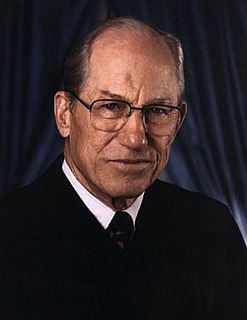A Quote by John Shattuck
It is especially imperative for Congress to exercise careful judgment in this area, because of the difficulty under existing laws, in obtaining judicial review of Postal Service abuses. ...We strongly oppose the legislation's infringement of rights guaranteed under the First, Fourth, and Fifth Amendments to the Constitution.
Related Quotes
The first ten amendments were proposed and adopted largely because of fear that Government might unduly interfere with prized individual liberties. The people wanted and demanded a Bill of Rights written into their Constitution. The amendments embodying the Bill of Rights were intended to curb all branches of the Federal Government in the fields touched by the amendments-Legislative, Executive, and Judicial.
If Americans loved judicial activism, liberals wouldn't be lying about what it is. Judicial activism means making up constitutional rights in order to strike down laws the justices don't like based on their personal preferences. It's not judicial activism to strike down laws because they violate the Constitution.
It is the fundamental right of every American, as guaranteed by the first amendment of the Constitution, to worship as he or she pleases... This legislation sets forth the policy of the United States to protect and preserve the inherent right of American Indian, Eskimo, Aleut, and Native Hawaiian people to believe, express, and exercise their traditional religions
The Constitution is not a law, but it empowers the people to make laws... The Constitution tells us what shall not be a lawful tender... The legislature has ceded up to us the privilege of enacting such laws as are not inconsistent with the Constitution of the United States... The different states, and even Congress itself, have passed many laws diametrically contrary to the Constitution of the United States.
There is a lot of talk in conservative circles about judicial modesty and deferring to the political branches. That view of judging often overlooks the important role that courts have in protecting people's rights. But if there was ever a time to defer, it is when Congress is protecting voting rights in the exact way the Constitution directs it to.
































